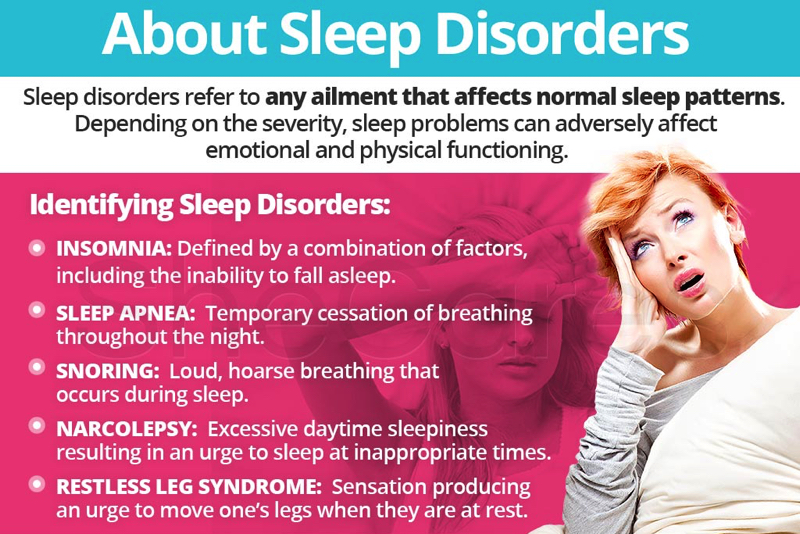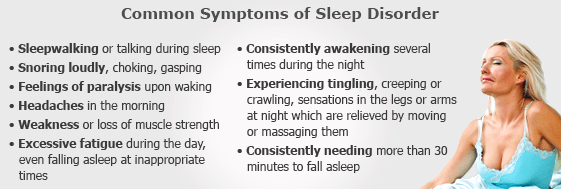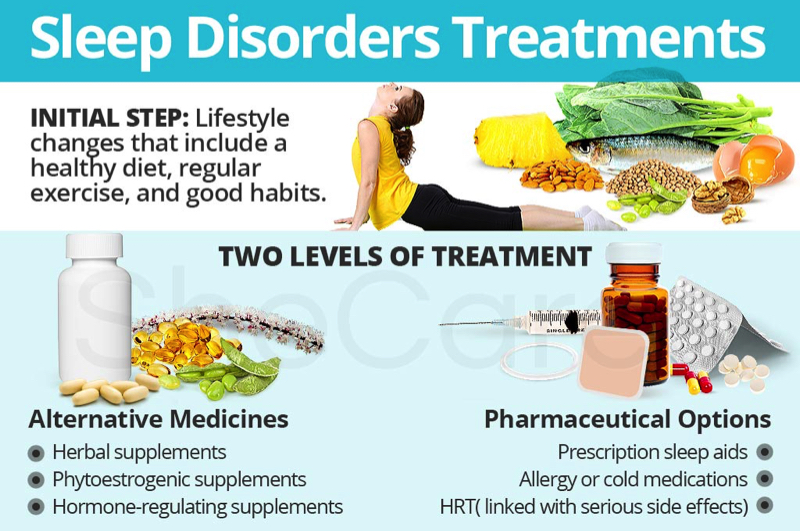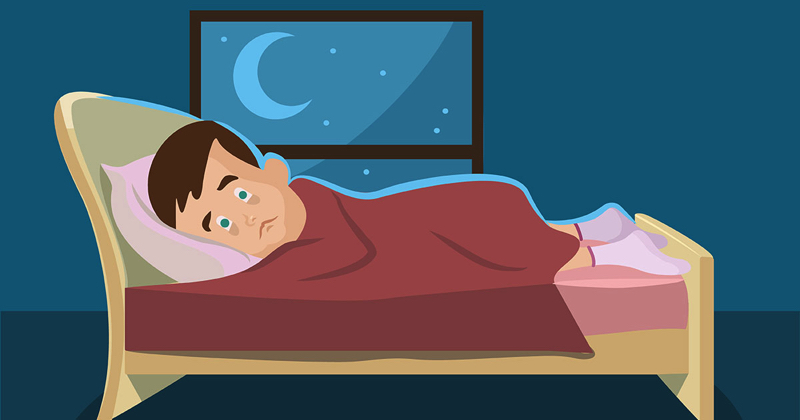
The sleep is complex biological process. Despite being unconscious while you sleep, your body and brain are still working. Numerous crucial tasks that support your continued health and optimal performance are being carried out by them. Consequently, when you aren’t getting enough good sleep, it affects more than just your ability to function properly. It may have an impact on how you feel, think, and carry out daily activities.
What are Sleep Disorders?
Sleep disorders are illnesses that cause modifications to your sleeping patterns. Sleep-wake difficulties frequently co-occur with your physical ailments or other mental health issues, like depression, anxiety or cognitive disorders.
All of your emotional and physical problems are related to sleep disorders. In addition to being a cause of or an aggravation of mental health issues, sleep issues can also be a sign of other psychiatric disorders. Adults express insomnia symptoms in about one-third of cases, and 6 to 10 percent actually have insomnia disorders.
Symptoms
There is the list of few signs and symptoms of sleep problems:
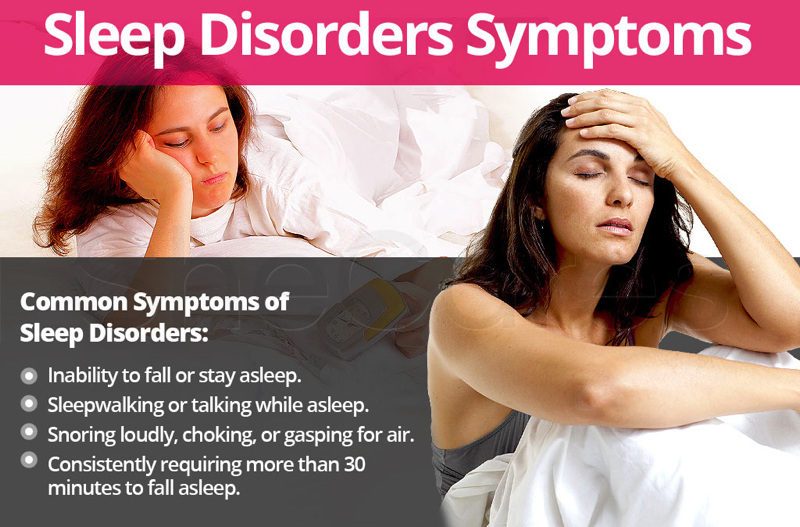
- Excessive daytime sleepiness
- Uneven breathing
- Need of naps almost every day
- Increased activity during sleeping
- Difficulty with your memory
- Slow responses
- Difficulty in controlling your emotions
- Trouble falling asleep
- An uneven sleep-wake cycle
Types of Sleep Disorders
The many types of sleep problems are numerous. They are frequently categorized into groups that describe why they occur or how they impact you. Other ways to categorize sleep disorders include habits, issues with your normal sleep-wake cycles, respiratory issues, difficulties falling asleep or staying asleep, and how drowsy you feel throughout the day.
Here is the list of few examples:
- Insomnia is a condition in which you have to face a trouble in sleeping.
- You can have sleep apnea, which causes irregular breathing patterns when you are sleeping. You can face sleep apnea in many different forms.
- RLS is a specific kind of sleep neurological condition. When you try to drift off to sleep, uneasy legs syndrome, also known as Willis-Ekbom illness, creates an uncomfortable feeling and the impulse to move your legs.
- More and unexpected day time sleep are the signs of narcolepsy.
Causes of Sleep Disorders
Several things can contribute to sleep issues. Although their underlying causes may vary, all sleep disorders have as their common disturbance of the body’s normal cycle of sleep and daytime wakefulness. Here are some common causes of sleep disorders:
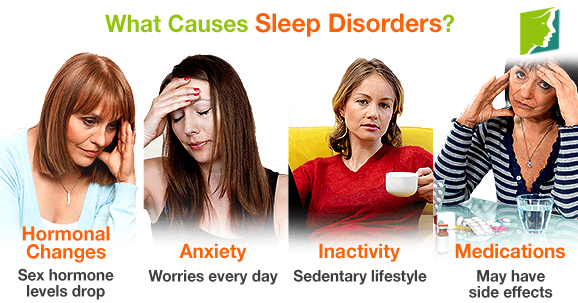
- Physical issues like ulcers
- Medical issues such as asthma
- Depression
- Anxiety
- Alcohol
- Genetics
- Medications
How to Diagnose Sleep Disorders?
Talk to your doctor about your symptoms if you think you might have a sleep issue. He or she can conduct a physical examination and assist you in identifying the sleep-related issues you are constantly experiencing. Your doctor may benefit from seeing a two-week sleep journal. Your health professional may conduct testing to check out other disorders because several illnesses might cause sleep disorders.
During a Polysomnogram (PSG) study, certain physical activity are electronically transmitted and recorded. For some people, home sleep apnea testing technique can also be performed. A skilled and professional doctor uses the recordings as data to examine the possibility that you have a sleeping condition.
It’s crucial to pay close attention to your sleeping patterns, keep a sleep diary, and talk with your doctor about the trends and aspects of your sleep in order to ascertain whether you have a sleep problem. Behavioral interventions and a greater focus on good sleep hygiene can help many common sleep issues. If you are much worried about your sleep patterns, speak with your healthcare professional.
How are Sleeping Disorders Handled?
Healthcare professionals have proposed a range of treatments:
- Counseling
Cognitive behavioral therapy is advised by certain sleep specialists. You can “recognize, confront and transform stress-inducing thoughts” with the aid of this counselling, which can help you avoid sleeping through the night.
- Exercise frequently
Try to exercise on daily basis to relax your body and improve mental health. Actually your body’s core temperature rises during exercise. The temperature of the core body begins to decrease after around 30 to 90 minutes. Sleepiness is made easier by this temperature fall.
- Drugs or dietary supplements
Melatonin pills have gained popularity as a sleep aid, especially when the melatonin phase is thrown off. Additionally, melatonin is said to lengthen and increase the quality of daytime sleep, according to numerous studies.
- Proper light and temperature
Maintain a proper light while sleeping to avoid distraction. Make it certain that you are comfortable while sleeping, by controlling the surrounding temperature.
Based on your particular circumstances, your healthcare expert will suggest therapies.
Conclusion
Because sleep is a sign of good health, it is important for you to get enough of it. Medication use is a result of age-related illnesses, and these medications may have an impact on your sleep.

The greater separation of the older people in the family from their dear ones has an effect on their psychological and mental health and can worsen the issue of sleep disorders. Between 50 and 70 million Americans suffer from sleep or wakefulness issues. A growing range of health issues, such as high blood pressure, cardiovascular disease, insulin, obesity, and several malignancies, are linked to sleep deprivation and untreated sleep disorders. The expense of sleep disorders can be high.

